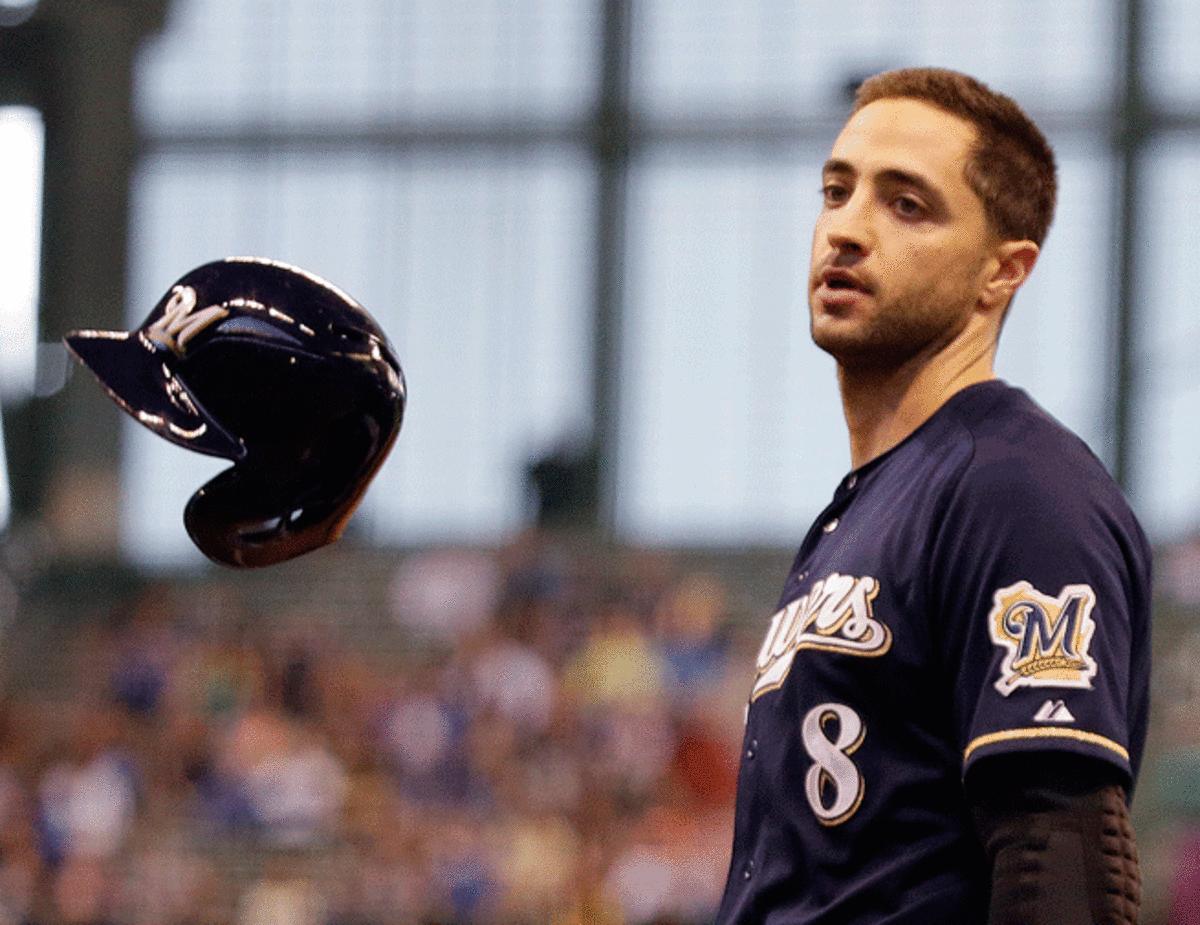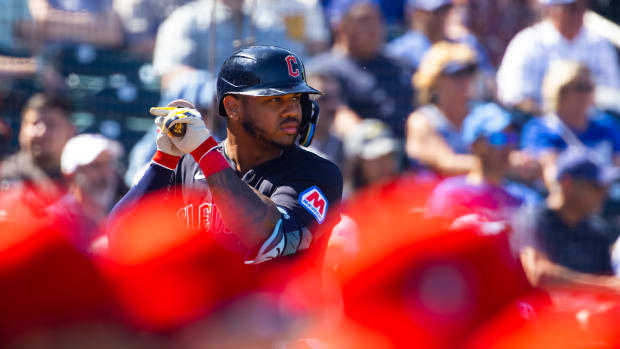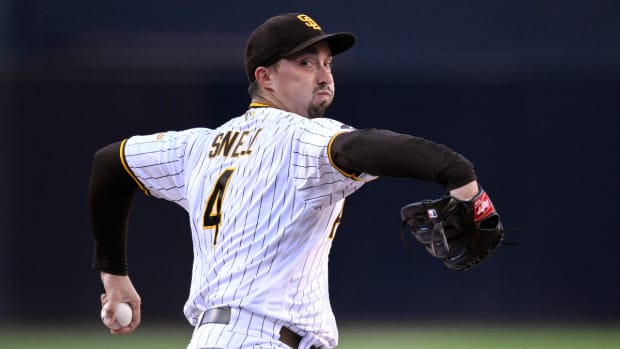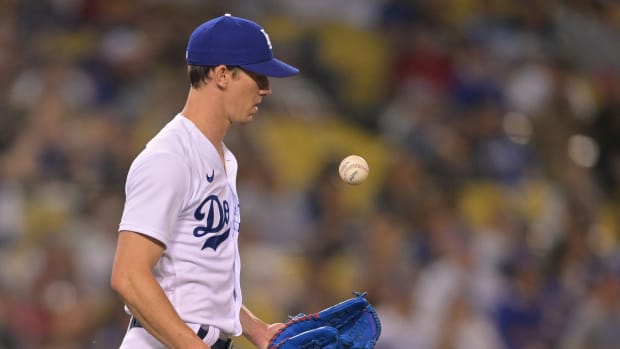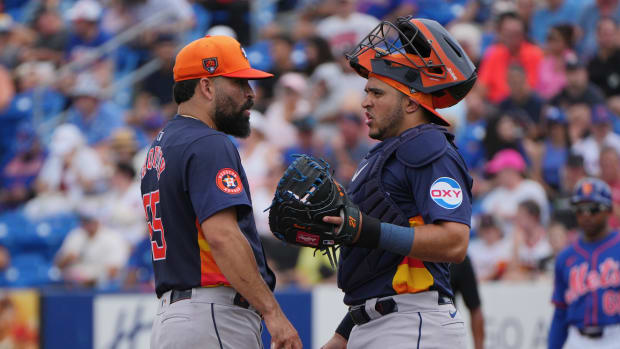MLB's reported deal with Biogenesis director raises many questions

According to a report, Major League Baseball could try and suspend Milwaukee's Ryan Braun for using PEDs and lying about it.
/AP
News that Biogenesis director Tony Bosch has reached an agreement with Major League Baseball to implicate about 20 big league players -- including Alex Rodriguez and Ryan Braun -- raises important legal questions about the limits of baseball to suspend players without a positive drug test and other important issues.
In late March, baseball sued Biogenesis, Bosch and six other company officials for intentionally interfering with players' contracts. The legal theory was novel: the clinic and its employees induced players into buying prohibited PEDs, thereby breaching their employment contracts. In exchange for agreeing to cooperate with baseball, MLB will reportedly drop Bosch from its lawsuit, indemnify him for any costs associated with his cooperation and defend his character should he face criminal charges.
As SI's Tom Verducci explains, no suspensions are imminent and baseball will continue its investigation into whether players used PEDs and then lied about that and their relationship with Bosch. If baseball suspends these players based mainly on Bosch's assertions, expect a swift legal challenge by the players' association. The challenge would be raised before an arbitration panel, where rules of evidence and procedure are not as stringent as those at trial.
Here are a few key areas where the players' association is likely to challenge major league baseball:
MLB's Reliance on Bosch
A key legal tactic for the players' association would be to frame the implicating evidence as uncorroborated and unreliable. Baseball would be basing a lot on statements from Bosch, who a few months ago the league portrayed as a drug dealer and who has self-servingly offered to "name names" in order to insulate himself from liability. Bosch is not the ideal witness, and it is reasonable to question whether tens of millions of dollars in players' salaries should be forfeited based on his claims. If Bosch lacks financial records and other corroborating documentation, his claims would be even less believable.
Then again, baseball has a track record for relying on testimony from cooperating and ethically-challenged witnesses. Most famously, in 1989, it built a case against Pete Rose on the testimony of convicted felon and gambling bookie Ron Peters. In exchange for Peters providing MLB with damning information about Rose, commissioner Bart Giamatti penned a flattering letter about Peters to the judge set to sentence Peters to prison. More recently, baseball relied on controversial statements and purported evidence from Roger Clemens' former trainer, Brian McNamee. In exchange for providing information to federal investigators and in turn baseball officials about Clemens and other players' alleged PED use, McNamee received immunity from prosecution. The players' association can argue that relying on those who have questionable backgrounds and incentives to lie should not constitute grounds for suspensions.
MLB's Legal Right to Suspend
In addition to attacking the quality of Bosch's testimony, the players' association can challenge the legal right of baseball to sanction players implicated by Bosch. To date, baseball has only suspended major league players for PEDs when they test positive. Under the Joint Drug Agreement, however, baseball can also suspend a player for participating in the sale or distribution of a prohibited substance. The players' association would likely insist Bosch's statements are dubious and not yet sufficiently-substantiated to warrant punishment.
MLB's Legal Right to Suspend Players for 100 Games
The players' association would also surely challenge suspensions of 100 games instead of 50 games. Assuming, for the sake of argument, baseball can prove the players lied and engaged in improper activities with Bosch, the players' association would insist these are first-time offenses and thus can only carry a 50-game penalty per the Joint Treatment Program. The players' association would highlight how the Joint Treatment Program does not expressly authorize jumping to 100 games based on the evidence presented.
MLB Teams Voiding Player Contracts
With four years and more than $100 million remaining on 37-year-old Rodriguez's contract, it is sensible for the Yankees to explore ways to void the remainder of the deal. If the Yankees attempt to void Rodriguez's contract based on his alleged involvement with Biogenesis, or if other teams try to do the same with their players implicated by the scandal, the Uniform Player Contract would become a key source of authority. Namely, Paragraph 7(b)(1) authorizes a team to terminate a contract if a player "fails, refuses or neglects to conform his personal conduct to the standards of good citizenship and good sportsmanship or to keep himself in first-class physical condition or to obey the club's training rules." Paragraph 7(b)(3), alternatively, subjects a player's contract to forfeiture if he "fails, refuses or neglect to render his services hereunder or in any manner materially breach this contract."
While this language seems sweeping, teams have seldom tried to void deals. When they have attempted to do so, they have usually failed or reached settlements that favor players (for example, the Rockies paid Danny Neagle $16 million on the remainder of his $19.5 million contract after he was charged with soliciting a prostitute). The players' association aggressively fights any risk of setting a dangerous precedent. Any attempt by the Yankees to void Rodriguez's contract would be met with a grievance and potentially even a lawsuit. It may not be worth the headache.
Defamation and Breach of Contract Lawsuits
In addition to arguments heard before three arbitrators, players could file civil lawsuits against Bosch, Biogenesis and -- if disciplined by baseball -- Selig. One plausible claim is defamation. In such a lawsuit, players would assert that they have been falsely portrayed as engaging in wrongful behavior and that this portrayal harmed their reputation. Players know that if they use the defamation strategy employed by Saints linebacker Jonathan Vilma against Roger Goodell, they would complicate baseball's ability to hold them accountable.
Breach of confidentiality agreements is another plausible legal claim players may have against Bosch and Biogenesis. These contractual agreements likely assured players that their patient care with Biogenesis would be kept confidential -- even upon threat of civil lawsuit. Bosch, however, is now apparently naming names and providing other evidence. Failure to uphold confidentiality agreements could lead to substantial damages, especially since player suspensions would mean tens of millions of dollars in lost salary.
For the time being, baseball's novel lawsuit against Biogenesis appears astute. By suing, baseball forced a key defendant to divulge information the league probably would not have obtained otherwise. Baseball's ability to force others to share information is quite limited. As a private entity, it has no subpoena power. The league also operates through a collective bargaining agreement, meaning its investigatory powers are mostly limited to rules agreed to by players. One exception is the "Best Interests of the Game" clause. This power is contained in baseball's constitution, a league document not collectively-bargained with players, and it furnishes the commissioner with broad authority to regulate any aspect of the game. Bosch's cooperation, however, avoids these kinds of dicey issues. Expect other leagues' commissioners -- including Goodell, David Stern and Gary Bettman -- to take notice of Selig's innovative legal strategy.
Baseball should not celebrate yet. Reaching a settlement with Bosch does not, by itself, end the litigation. Baseball has not indicated if it will also drop the lawsuit against the six other Biogenesis officials. If the litigation continues and if any of the other defendants succeed in getting the case dismissed it will hurt Bosch's credibility. Does Baseball want to risk pretrial discovery or a trial, where unflattering information about teams, managers, coaches and trainers connected to implicated players might be revealed? On the other hand, if baseball now drops the case and none of the other Biogenesis defendants cooperate, can the league feel good about relying only on Bosch's word?
One thing is for sure: the Biogenesis scandal is far from over and some important legal questions still need to be answered.
Michael McCann is the founding director of the Sports and Entertainment Law Institute at the University of New Hampshire School of Law and the distinguished visiting Hall of Fame Professor of Law at Mississippi College School of Law.






























